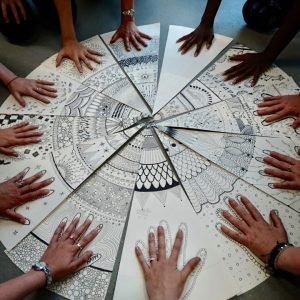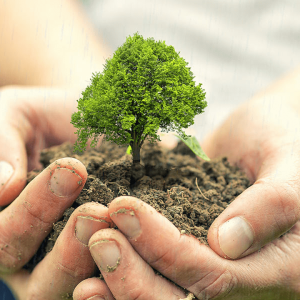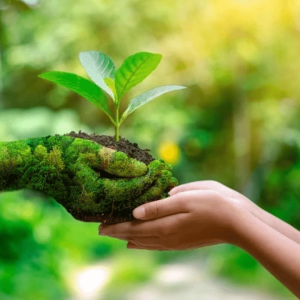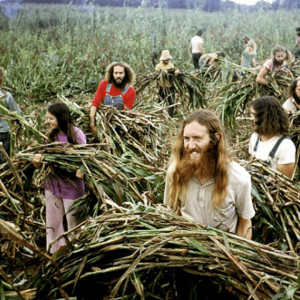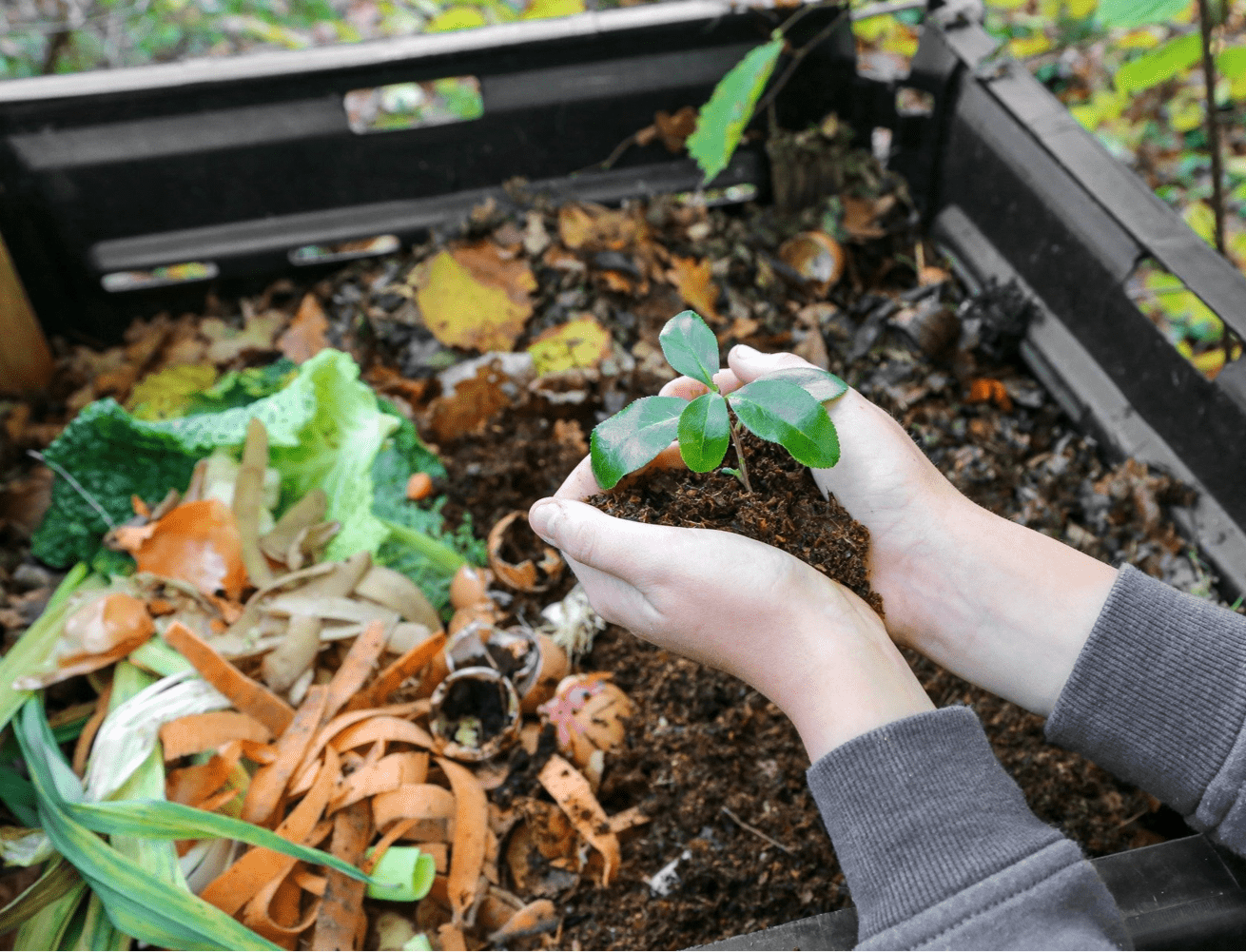
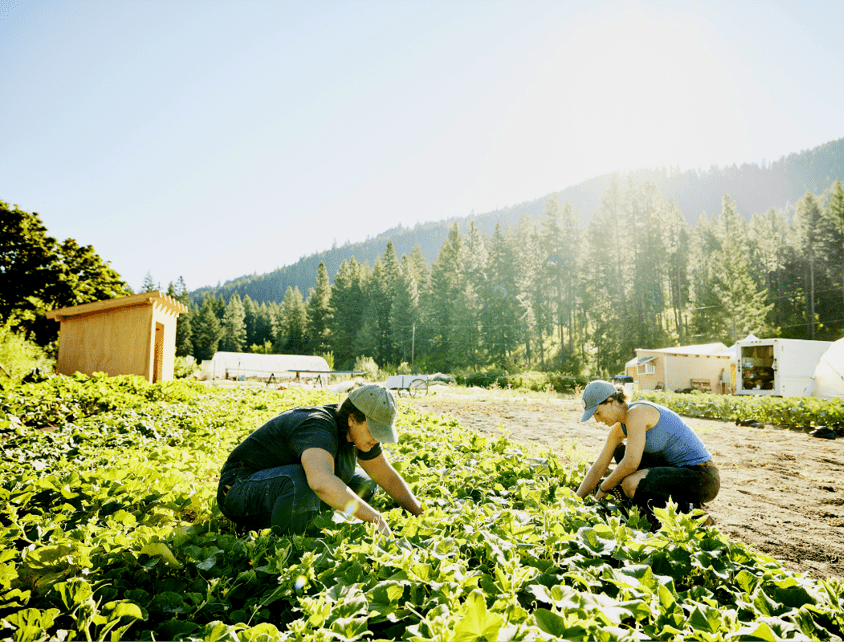


contributing to Clean
Wider world Environments
adopting clean living habits that create positive
socio-economic & ecological impact
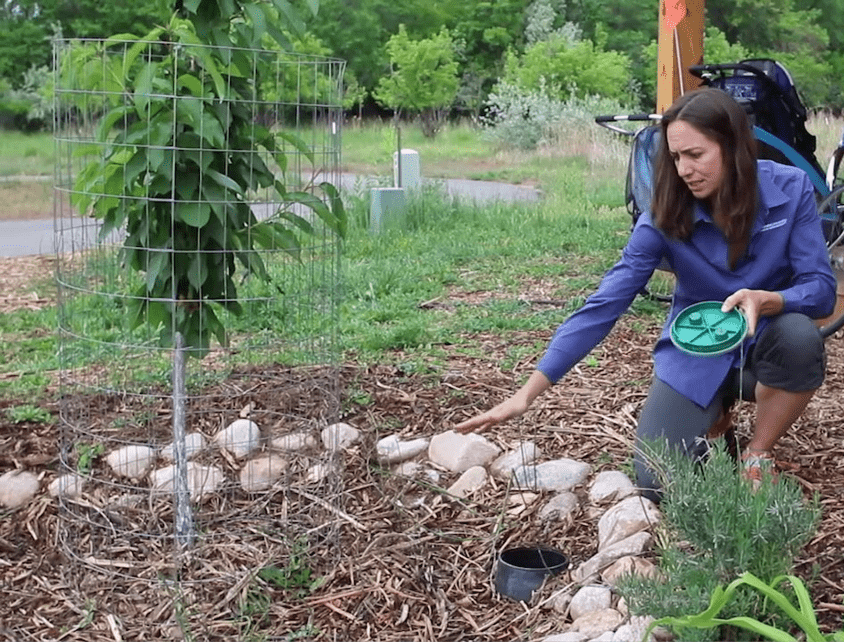

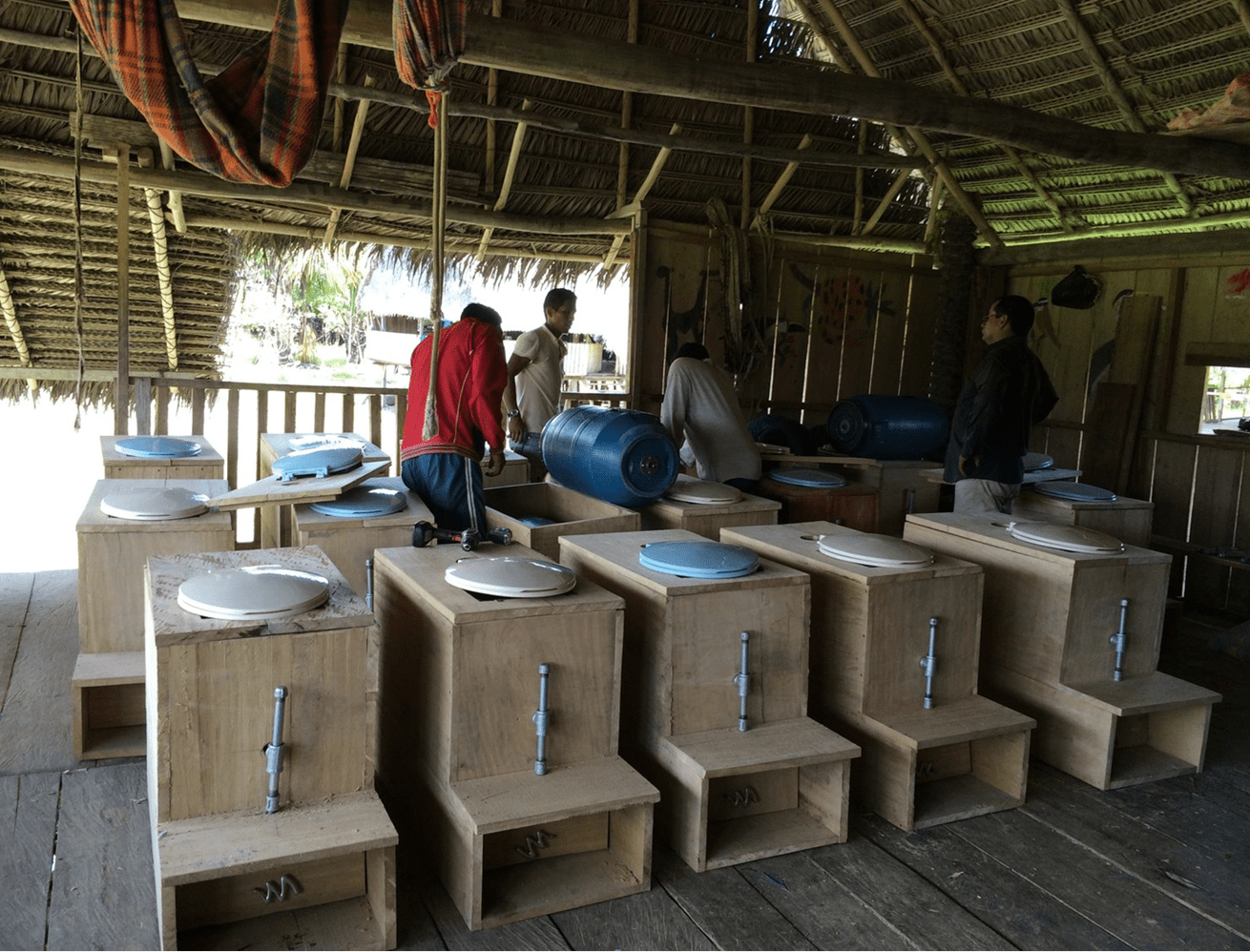

Evolved Living Nutrition Diet & Lifestyle contributes to positive environmental impacts
From the first year of association and beyond, communitarians eat predominately fruit from living trees which is the only diet and lifestyle that has the potential to reforest the earth. The major benefit of adopting a diet rich in the fruits of living trees, is the stabilization of both air and soil temperatures, which is why communitarians adopt as their central Right Livelihood mission, gardening – restorers and extenders of the earth.
Once fruit trees are planted, the soil is mulched and left undisturbed throughout the grove’s lifetime, which is anywhere between 20 to 200+ years. As an example, if well cared for, Mango and Pomegranate trees have the potential to achieve a lifespan of 200+ years; while Mulberry, Apple, Jujube, Loquat and Sapote trees have a lifespan of 100+ years. Well-tended Fig trees will live and fruit from 50-75 years; while Citrus, Apricot, Peach, Plum, Pear & Persimmon trees will live and provide abundant fruit from between 20-40 years.
The canopy of fruiting trees, cover and protect the soil, while the massive root system holds the soil together, providing protection against erosion caused by exposure to rain, wind, heat and compaction. By adopting the diet and lifestyle of evolved living nutrition, communitarians contribute to restoring the ‘hair’ of the earth – living trees, which results in preventing dust storms, mudslides, and the loss of precious top-soil.
Contributing to Clean-Green Food Production
Communitarians following the living nutrition diet and lifestyle usually couple this commitment to contributing time and energy to producing clean-green organic food for both health and conservation reasons. Organic food growing methods are proven to be better for the environment due to the utilization of inputs and methods of cultivation that are healthier and more sustainable.
Modern conventional farming methods comprise excessive use of chemicals and monocropping which sees the planting of only one crop multiple times. The negative impacts of these types of anti-nature food production methods, result in the rapid decline of soil fertility, and also increases salinity as well as the prevalence of toxic blue-green algae blooms within waterways that may infect and render toxic, large areas of land and water for many years.
In contrast, organic farming methods seek to minimize damage to ecological systems with the aim of preserving both flora and fauna by utilizing crop rotations, inter-cropping, symbiotic associations, cover crops, along with organic fertilizers and minimum tillage as central cultivation practices.
Physical weed control is likewise a critical difference between organic farming practices and conventional farming. Rather than polluting the ground and waterways with chemical weed-killers, organic farming methods employ the use of mulch to suppress weeds and also utilize flame torches and hand-weeding to reduce evasive weeds that compete with food plants.
Organic farming is also known as ‘ecological’ farming that improves soil quality and also conserves groundwater by utilizing green manures and compost as clean-green inputs that supply material that encourage biodiversity of soil microbes and improves soil structure to ensure stable and productive environments are carried forward into the future.
Communitarians involved in Right Livelihood ‘common wealth’ organic food production understand that clean healthy soil is key to growing clean-green healthful food. While organic food producing methods are significantly more labor intensive compared to conventional production methods, communitarian food producers, grow and produce fruits and vegetables without using synthetic chemicals such as pesticides and artificial fertilizers. Nor do the common purse ‘common wealth’ provisioning unions use genetically modified seeds or other components, or expose produce to irradiation.
As right livelihood, organic food producers, what we grow and how we grow fruits and vegetables as well as timber trees, aims to contribute to the stability and homoeostasis of Agro-ecosystems. As competent gardeners devoted to restoring and extending productive sustainable ecological systems on land and in the sea, the methods employed must meet the criteria of improving soil fertility through the incorporation of legumes and compost, as well as through recycling local nutrients and organic matter.
Thus communitarian permanent agriculture and food foresting endeavours rely heavily on preventive and system-oriented clean-green farming practices that contribute to creating and sustaining clean wider-world environments.
Composting to ensure the Cleanliness of Urban & Rural Environments
Through practicing the principle of conservation, communitarians contribute to the building of soil as well as increasing of overall fertility of food producing gardens and food forests by composting organic material derived from plants and animals as well as human sources.
As gardeners, restorers and extenders of the Earth, communitarians contribute to the recycling and restoration of soil fertility through diligent gathering of food scraps, weeds, leaves, grass cuttings, mulch hay and straw, along with sourcing locally available agricultural by-products, such as peanut shells, sugarcane bagasse or cotton ginning waste to add to compost piles.
Human sources of compost are derived from compost toilets which are extensively installed and utilized within communal living facilities to recycle nutriments via composting ‘toilet material’ which includes urine, excreta and toilet paper, along with covering materials such as sawdust, straw and grass clippings.
Animal manures sourced from free-range pastured animals are also added to communal living facility ‘biogas digestors’ and compost piles to increase the aerobic decomposition of organic material in such a manner that it develops internal biological heat. When available, manure from rescued cows, horses and chickens is utilized to build the fertility of kitchen gardens and Food Forest Projects.
Zero Waste
In the fifth year of association and beyond, communitarians are encouraged and supported by the ‘common purse – common wealth’ provisioning committees to acquire knowledge and skills that contribute to installing and applying zero-waste resource management systems within domestic as well as local, regional and wider-world production environments.
As responsible stewards of the earth’s resources, communitarians play an active role in eliminating waste through dedication to recycling, reusing, repairing and repurposing, together with reducing energy consumption by sharing facilities and transport in both household and ‘common purse’ provisioning production, as well as wider-world contexts.
Part of the zero-waste skill-set provides communitarians with collaborative opportunities to reduce, and ultimately, eliminate personal waste by joining forces to procure, install and utilize renewable energy equipment to generate clean-green electricity, thus eliminating the use of polluting non-renewables such as coal and gas.
Under the One Cloak tenet of ‘Making’ – creating to defeat exploitation of people and planet, communitarians share workshop facilities, along with tools and equipment that support the design and creation of durable artisan clothing, footwear, furniture and household effects.
Practicing habits of Cleanliness that ensure Pristine Waterways
Cleaning Grey Water for Reuse
Communitarians practice the habit of recycling all water from showers, washing and other domestic uses, by channeling used water to sand and reedbeds before piping or bucketing onto kitchen gardens and fruit trees.
Reed beds made of sand and rubble are installed as part of the construction of kitchen gardens as routine ecological practice to effectively and responsibly reuse domestic grey water to grow clean-green organic herbs, fruits and vegetables.
Utilizing clean-green natural cleaning products & processes, together with Natural Personal Care Products to ensure the Health of People & Planet
Only natural bio-degradable environmentally-friendly soaps, laundry detergents and household cleaning agents which are ‘homemade’ or made collaboratively within the shared ‘Make Hubs’ are used to clean and maintain personal hygiene, as well as, personal and communal living facilities.
In an effort to ensure land and waterways are protected from pollution, laundry detergents made from toxic chemicals as well as artificial perfumes and dyes are not used by communitarians to avoid these pollutants leaching into drains that eventually end up contaminating groundwater that flows into creeks and rivers that discharge water into the sea.
In contrast, those aligned with the tenets of ‘One Cloak’ which include contribution to wider-world environmental cleanliness, use only laundry detergents made from natural ingredients such as borax, washing soda and essential oils. While these types of non-polluting cleaning products may take more time and effort to make, they are better for the environment while also prolonging the life of clothing and linen as well as produce cleaner and brighter results.
Homemade natural bathroom and personal-care solid and liquid soaps packaged in recycled or reusable containers, also have less impact on landfill while ensuring land and waterways retain safe for current and future generations.
Renewable Clean Energy Generation
Contributing to reducing the amount of land and waterways ‘injured’ by the removal of massive amounts of topsoil that result in erosion, loss of habitat and pollution caused by mining coal and gas that sees heavy metals dissolve and seep into ground and surface water, heads the list of ‘common wealth’, Right Livelihood provisioning endeavors.
For these reasons, communitarians are committed to making practical contributions to the world-wide adoption of clean, green energy generation in all forms, including solar and wind power generation as well as plant-based bio-gas.
Sharing Collective Solar Power Generation Systems
As collectives committed to living in alignment with the principles and practices of responsible ecological stewardship of the earth’s resources, where ever possible, communitarian unions install and utilize solar energy equipment as the main source of electricity generation.
Utilizing the sun to generate the collective’s electricity needs, means we produce no harmful emissions, thus improving immediate as well as wider world air quality. The installation and utilization of high-grade solar energy generation equipment also results in lessening the global network of communal unions reliance on fossil fuels, while also lowering energy costs.
As gardeners, restorers and extenders of the Earth, across the globe, many communitarians are engaged in reafforestation and permanent agriculture projects located in rural and remote areas that are predominately, ‘off-grid’. For these reasons, it is essential that those contributing labour and expertise to these types of ‘common wealth’, ‘Right Livelihood’ mobile endeavours, acquire in-depth knowledge and operational competency of grid-independent power generation.
Installing and maintaining solar panels, lithium batteries, inverters, cables and charge controllers, along with mounting hardware, are critical skills communitarians are encouraged and supported to acquire from the fifth year of association and beyond.
Heating Water with the power of the Sun
Solar water heaters supply clean-green hot water eliminating the use of non-renewable fossil fuels such as coal and gas; both of which ‘injure’ land and waterway in their harvest and also pollute the environment when ‘burnt’ to generate electricity.
The way a collector-based system works is that the solar panel is designed to soak up the sun-rays and transfer the collected heat to water for use within kitchens and bathrooms. Solar water heaters also have the added benefit of lasting longer than conventional electric and gas water heating equipment.
For these reasons, where ever possible, communitarian unions install and utilize high-quality solar water heaters that comprise one or more solar panels, a storage tank and an electric or green biogas booster to supply hot water for showers and baths as well as clean and sterilize dishes and food prep equipment etc., within communal kitchens.
Generating Electricity from Wind Turbines
Combining both wind and solar equipment to generate off-grid electricity ensures reliable energy production is supplied to mobile communal living villages engaged in land regeneration projects and other remote on-site ‘common wealth’ provisioning projects.
Because the peak operating times for wind and solar systems occur at different times of the day and year, hybrid systems are more efficient in producing reliable amounts of electricity when needed. Adding high-quality high-preforming wind turbines to off-grid systems, ensures clean-green renewable energy is generated in winter when the wind is strong and less sunlight is available to shine on the solar panels.
For these reasons, it is common for mobile as well as stationary communal unions to install wind turbines in conjunction with solar panels and batteries to generate electricity during the night and also on cloudy days.
Creating Green Bio-gas for Cooking & Heating from Waste
Communitarian unions practicing communal living, where possible, install green Biogas generators to produce gas for cooking food, lighting and heating water as well as if available in sufficient quantities, gas to heat personal and communal living spaces.
Whether portable or fixed, Biogas generators are used to extract by-products from organic waste such as human and animal excreta, food scraps and grass clippings which can be used to replace traditional fuels. Large biogas generators supplied communal inputs such as green waste, do not release as many greenhouse gases when burned compared to other fuels such as coal, coal seam gas or diesel.
Additionally, Biogas generators provide a safe and clean way to effectively and safely recycle human manure through composting the excreta in such as a way as to destroy harmful bacteria during digestion in the biogas generator.
The digested sludge from the bottom of the biogas generator and over-flow effluent water is also used as a fertilizer for organic food crops.
The installation and utilization of Biogas equipment requires far less time and effort to source than other fuels that traditionally are used for stoves and water heaters such as wood, LPG and oil creating far less negative environmental impacts.
Biogas stoves are also cleaner creating no smoke and leaving no ash, and therefore reduces health problems caused by burning other fossil fuels indoors.
Sharing Clean-green Electric Modes of Transport
Individually, most of us cannot afford to buy an electric vehicle on our own, nor justify this expensive mode of transport to be left sitting in our driveways idle for most of the day and night, or else parked outside in the street taking no one nowhere while we work.
However as participants in common purse, ‘common wealth’ collective modes of sharing instruments that provide comfort, freedom and secure provisioning of all that is required to ensure a full life of liberty, economic support and companionship, as well as, stimulation and adventure, sharing the cost and expense of accessing electric clean-green renewal energy vehicles, is made an affordable reality.
Having access to electric modes of transport encourages communitarians to take life at a slower pace. While charging takes time out of the journey, it also provides opportunities to explore all that is beyond the windscreen and windows of the vehicles in which we travel.





